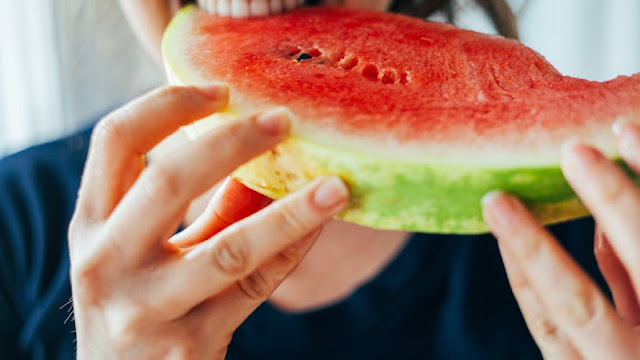A few weeks before summer and the return of watermelon to the shelves, doctors are reporting several cases of people having been hospitalized after eating too much.
Watermelon is good for your health, but not in excess, at least for some people. American doctors reported in the journal Annals of Internal Medicine three cases of patients who were hospitalized after eating watermelon in large quantities .
Excess potassium
All three patients suffered from health problems, including kidney disease, which made them more likely to suffer from hyperkalemia, an excess of potassium in the blood . Hyperkalemia “is a potentially life-threatening disorder. The estimated mortality rate for patients with untreated severe hyperkalemia is greater than 30%,” the doctors specify in the study (source 1). Potassium is a mineral essential for the proper functioning of the brain and muscles, but in excess, particularly when it is poorly eliminated by the kidneys in the urine, it can impair this functioning.
Watermelon is thus an important, but “under-recognized” source of potassium, according to researchers . It contains 100 mg per 100g. A large slice of this summer star fruit provides 126 mmol of potassium, while the World Health Organization recommends not exceeding 90 mmol per day.
All 3 patients consumed a significant amount of watermelon
The first case reported is a 56-year-old man suffering from renal failure . He was hospitalized in intensive care after losing consciousness . His heart rate was only 20 beats per minute, when it should normally be between 50 and 100. His blood tests revealed a high potassium level of 7 mmol/L, when it should not exceed 5 mmol/L. After asking him about his treatments, habits, etc., the doctors noted that the man had been consuming large quantities of watermelon every day for the past two months.
The 2nd case is that of a 72-year-old man, suffering from heart and kidney problems, who was also admitted to intensive care for severe hyperkalemia. He revealed that he had been drinking two glasses of watermelon juice every day for a month.
Finally, the third case reported is a 36-year-old woman with end-stage renal failure who arrived at a clinic with a blood potassium level of 7.5 mmol/L.
Fortunately, all three patients were treated in time . After they stopped eating watermelon, their blood potassium levels returned to normal limits.
Better “raise awareness” among kidney patients
“This case series illustrates that high consumption of watermelon can induce hyperkalemia in patients with renal insufficiency . Watermelon is a popular summer fruit and although bananas , potatoes and tomatoes are known to cause hyperkalemia, the risk of hyperkalemia after excessive consumption of watermelon is often overlooked. It is essential to provide dietary advice to patients with advanced chronic kidney disease to raise awareness of lesser-known foods high in potassium ,” the study authors emphasize.
They also recall the existence of other risk factors for hyperkalemia , such as diabetes mellitus , heart failure , but also the taking of diuretic drugs , inhibitors of the renin-angiotensin-aldosterone system, anti-inflammatories non-steroidal or immunosuppressive drugs.
Source 1: “ Watermelon-induced hyperkalemia: a case series ,” Annals of Internal Medicine, April 2, 2024.


0 Comments